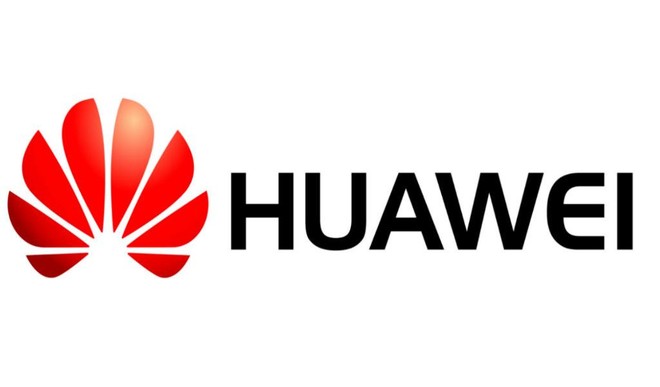The arrest of Huawei’s CFO by Western law enforcers
This story is big: the chief financial officer (CFO) of Huawei, the pride of China in telecommunications equipment and cell phone manufacturing, was arrested on 1 December 2018 in Vancouver, Canada, on suspicion of violating US sanctions against Iran. The CFO, by the name Meng Wanzhou, who also happens to be the daughter of the […]

This story is big: the chief financial officer (CFO) of Huawei, the pride of China in telecommunications equipment and cell phone manufacturing, was arrested on 1 December 2018 in Vancouver, Canada, on suspicion of violating US sanctions against Iran. The CFO, by the name Meng Wanzhou, who also happens to be the daughter of the founder of Huawei, Ren Zhengfei, was nabbed in Vancouver while transferring between flights. A court hearing was scheduled for last week Friday, and Wanzhou faces extradition to the US.
The US authorities have reportedly been investigating Huawei since at least 2016 for allegedly shipping US-origin products to Iran and other countries in violation of Obama-era US export and sanctions laws. The arrest of Wanzhou is certainly the latest in this saga. Given Wanzhou’s status in the Chinese corporate ladder, it’s not surprising that the arrest has risen to the top of Chinese political discourse, with Beijing protesting and demanding the immediate release of the accused.
Huawei sells more phones than Apple, and is second only to Samsung Electronics. It is also the largest telecommunication equipment manufacturer in the world, ahead of Cisco. Independent of how Huawei attained its success – and there are several theories about this – the company seems to be destined for world tech leadership. However, this journey will not be easy for Huawei, as is usually the case in life: Somehow, somehow, problems crop up when you’re making huge progress, serving to slow you down, as if to say rapid growth must always be checked. Checked so that you don’t go too high up toward the “sun” where you could eventually get burned! Obviously, this statement, if not fatalistic, reflects a superstitious disposition on my side; but truly, life has a way of throwing in some kinks into an otherwise progressive venture. We all should be ready for that.
Huawei is probably not taken by surprise. After all, the West has a long list of accusations against the company, including intellectual property (IP) theft, acting as an agent of the Chinese government to surreptitiously collect security information via the gadgets the company sells in other countries, and the dealing with Iran. The CFO Wanzhou served on the board of Hong Kong-based Skycom Tech, which has business in Iran, according to corporate filings reported by Reuters. Reuters also found that the company, which attempted to sell embargoed Hewlett-Packard computer equipment to Iran’s largest mobile phone operator, had closer ties to Huawei than was previously known to Western law makers. This was in 2013. It is generally believed that Wanzhou, the oldest of Zhengfei’s three children and who was promoted this year to serve as vice-chair on the company’s board on a rotating basis, is being groomed to take over from her father who is 74 years of age. Zhengfei founded Huawei in 1987 after retiring from the Red Army.
There may be serious consequences for Huawei, however, if the accusation of violating sanctions can be proved. For example, the company could be banned by the US from receiving American parts, which means that the company’s smartphone business could grind to a halt. Although the company might have been preparing for such an eventuality – for example by making its own chips and developing an alternative to Google’s engine (Android) that currently powers most of Huawei’s phones – perfecting these technologies is not a walk in the park.
Although Huawei is reportedly on track to launch its first 5G handset by the end of this year, governments in the West will not touch this. As reported in this column in Daily Trust a few months ago, on 22 August 2018, the Australian government issued new security guidelines for 5G carriers that basically banned Huawei and ZTE from providing 5G technology to Australia. This is in spite of the fact that Huawei has reportedly been delivering wireless technology in Australia for close to 15 years.
It is not just the US and Australia that have already moved to block the use of Huawei’s equipment as part of the future rollout of 5G networks. New Zealand has followed suit. The developments of a few days ago regarding the arrest of Wanzhou seem to have convinced Japan to also ban government purchases of telecommunications products from Huawei over fears of intelligence leaks and cyberattacks. The UK Guardian reported on 6 December 2018 that BT has confirmed it is removing Huawei equipment from key areas of its 4G network after concerns were raised about the Chinese firm’s presence in critical telecoms infrastructure. (BT Group plc is a British multinational telecommunications company with its headquarters in London, UK. BT reportedly has operations in over 160 countries and is the largest provider of fixed-line, broadband and mobile services in the UK. It also provides subscription television and IT services.)
Obviously Huawei needs to rise above the various allegations and operate fairly and within the various laws. This way, the company’s own legit innovations can be appreciated, while the company’s existence can help to balance the global competition landscape and further spur tech innovations.
